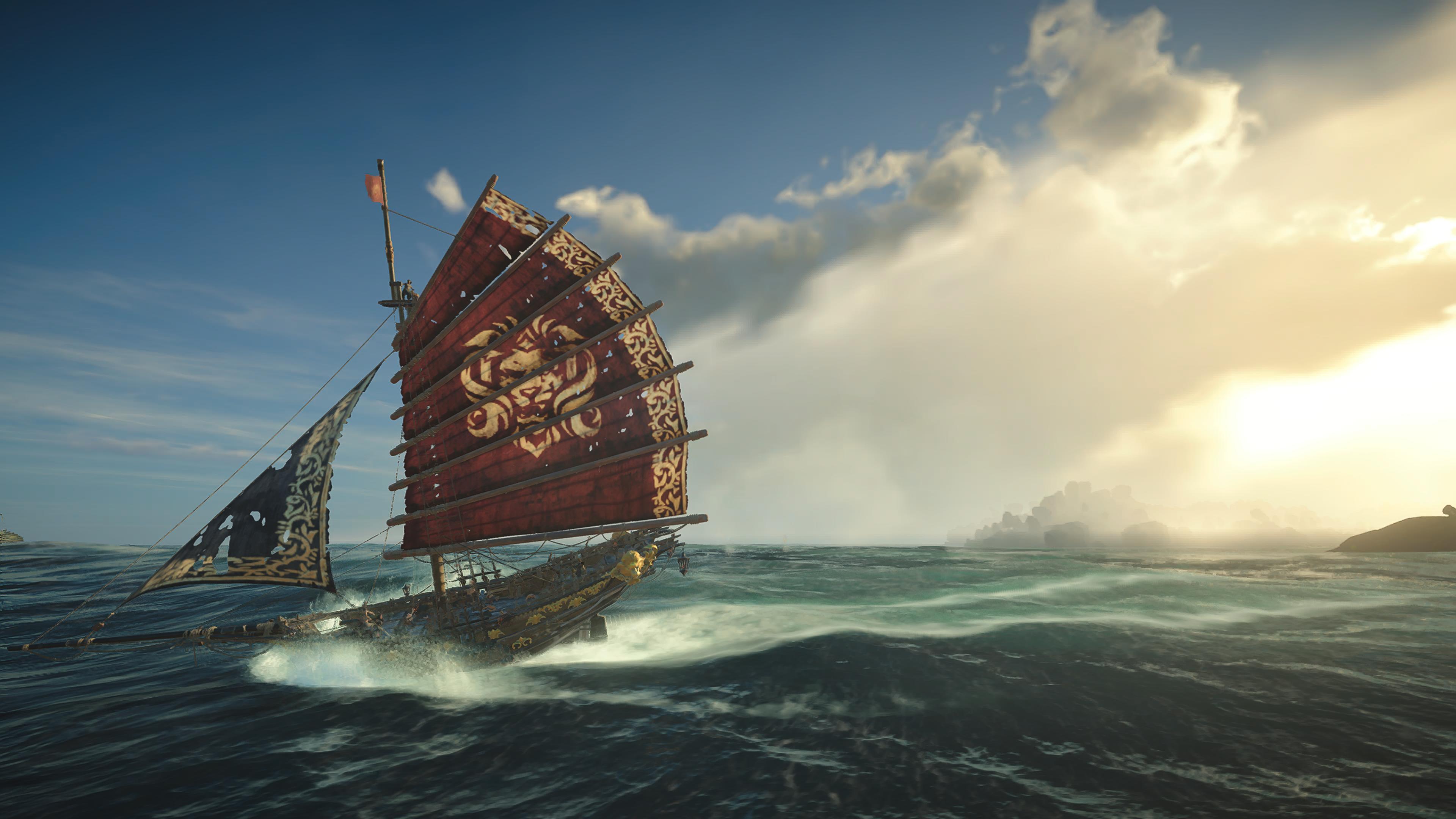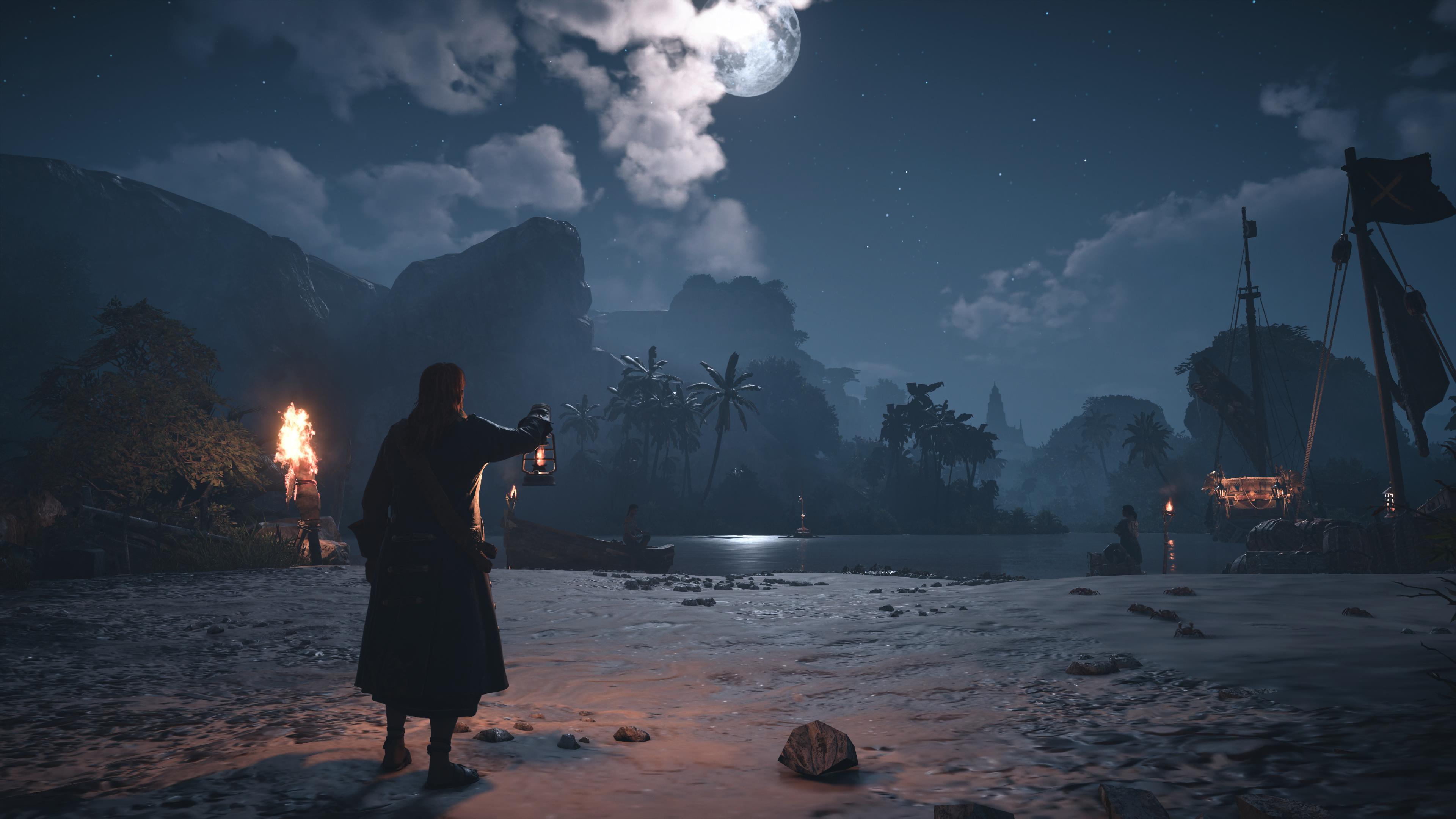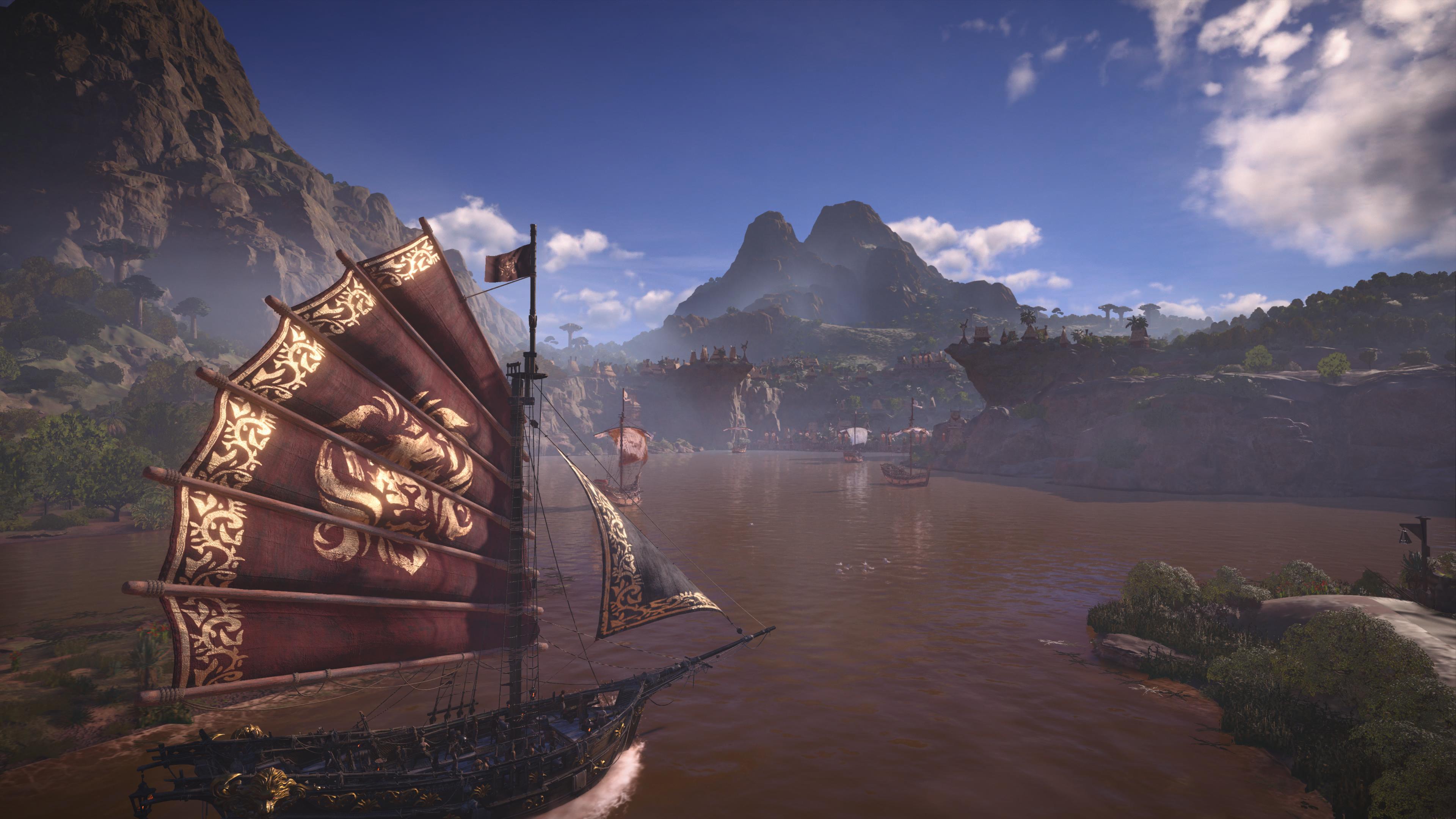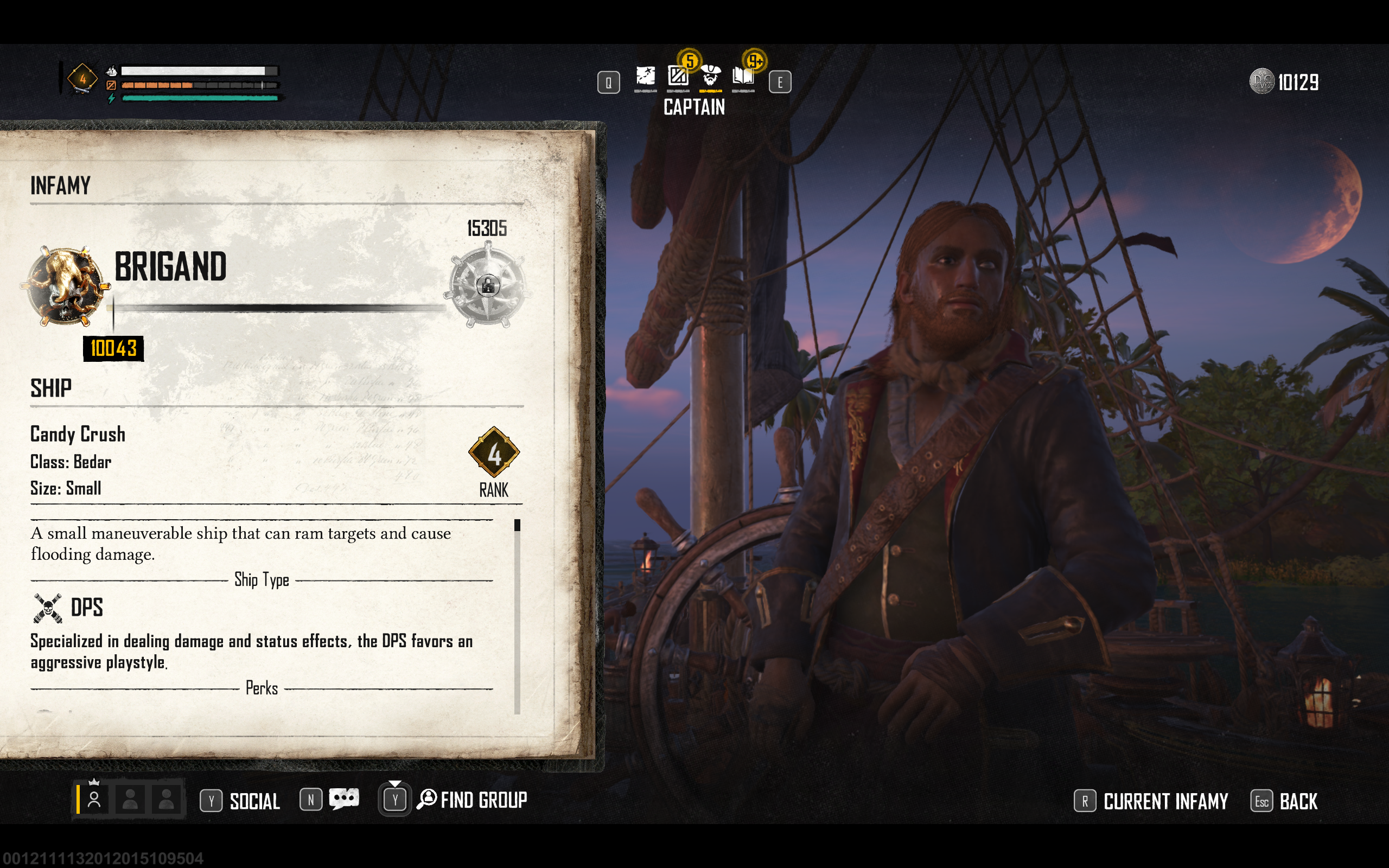11 things I wish I knew before playing Skull and Bones
Ease the early game burden with spyglasses, rusty nails and indiscriminate boat violence.

I've been boating around Skull and Bones for about thirty hours now, but I probably could have achieved the same amount in twenty if I'd been smarter. Skull and Bones isn't an especially challenging game but it demands a lot of time, and the grind can wear if you're the kind of player who wants to get really big really fast. I'm working on a review at present, but Tyler had these thoughts about the open beta last week.
I'm not going to make it any less of a grind for you, but hopefully these pointers will help you avoid some early game annoyances, and some points of vagueness that led me slightly astray. No spoilers, and lots of rusty nails.
Loot indiscriminately
Skull and Bones can be grindy. All the loot you encounter you're probably going to need at some point. If you think you've got enough rusty nails, just assume you can never have enough rusty nails. Load up on that garbage. Load up especially on metal salvage. Load up on everything.
Always be moving cargo to your warehouse
Part of the reason you should loot indiscriminately is because you have a warehouse which can be filled with billions of rusty nails if you choose. Whenever you dock somewhere, move all the crafting materials and commodities you've accrued out on the water straight to your warehouse (don't transfer things you'll need though, like repair kits and ammo). This frees up space in your cargo and prevents overburdening. More importantly, being sunk drops most onboard cargo at the location of your death, and retrieving it can be time consuming and dangerous. If you're not in the habit of moving stuff to your warehouse, death can be very painful.
There's no disadvantage to having stuff in your warehouse either: when you visit a vendor—say a blacksmith—and need something crafted from materials, all the stuff in your warehouse will be magically factored in. You won't need to worry about warehouse space for many more dozens of hours yet.

Always be docking
Outposts are small settlements that can be docked in and explored on foot. Always dock in these, even if you have nothing to do there. Most importantly, this creates a new fast travel option. Secondly, it's an opportunity to transfer stuff to a warehouse and do a full repair to your boat if needed. And relatedly…
Buy all the blueprints you can in early game
Skull and Bones has a fiddly crafting system. Crafting a new weapon or even just a box of cannon balls requires a range of materials you'll need to get out and find. But before you do that, you'll need the blueprint to be allowed to craft it. Try to buy these when you find them, even if you think you won't need them. It'll save on long annoying trips later.
Keep up to date with the most important stories and the best deals, as picked by the PC Gamer team.
Be indiscriminately violent
Skull and Bones doesn't have a complicated reputation system: it's more akin to GTA's wanted levels. If you blow up a ship you'll aggro other ships of the same stripe in the vicinity, but once you've either a) blown those up too or b) disappeared into the mist, the aggro will die down and everyone will act like nothing happened. That means you should definitely be a bastard. It makes you money and resources, and it's fun. You're a pirate not a Dior-shirted yachtsperson. Eff shit up.

Keep hydrated and nourished
Pirates need water and food too, not just rum. Every outpost has a barrel of water and you should definitely replenish there, because consuming water while sailing increases your speed by around four knots. Given how much time you'll spend going to-and-fro for long, long minutes, it's good to realise this feature exists early, rather than twenty hours in (like me).
Meanwhile, eating food will confer various buffs, like an increase to your boat's stamina. It's good to strategically consume this stuff before going into battle or, similar to the above, before a long trip into the unknown. I ignored this feature for a long time but it's actually really useful, and food ingredients aren't hard to come by incidentally.
Stick together in co-op
It's nice to be invited randomly into a group, but in the early hours it's only worth it if you plan to stick with the other members. That's because in co-op enemies are stronger, and that holds true even if the rest of your crew are twenty kilometres away, doing their own thing. Sure, you'll net more loot from felling baddies, but if you're a lone sailor, especially in the early hours, you probably don't want to play on a difficulty designed for cooperative play.
Your spyglass is really useful
Always be whipping out your spyglass for a closer look at other ships, settlements and even islands. You can mark enemies with the spyglass and also (magically) see what cargo they're holding, which is especially useful if you're on the prowl for a certain material or resource. You can also see what armor they're rocking and how much Infamy you'll gain if you crush them.
Roam relevant supply routes for the materials you need
When at the Blacksmith, make sure you "track" a blueprint's material requirements. This makes it much easier to source the right materials because they're then marked on your map, usually along relevant supply routes. You can visit settlements along these routes and buy the right materials, or you can roam that route and demolish any boat with what you need in its inventory. As per above, use the spyglass to make sure attacking a ship is worth it.

Understand progression
Infamy is your overall pirate ranking: you'll start as Outcast and move through the ranks (Scoundrel, Rover, Freebooter, Buccaneer, Brigand, Marauder, Corsair, Cutthroat) until you reach Kingpin. Infamy doesn't make you more powerful: it just determines the kind of gear you can gain the blueprints for, and the kind of contracts (missions) you can take on. It's Skull and Bones' way of gating good stuff for later in the game, and it doesn't affect your current ship at all.
Your ship rank—an entirely different progression track—depends both a) on its base rank and b) on the gear you equip to it. Think Destiny.
If you see another player going hog wild on a settlement or baddie, join in
When roaming the seas you'll sometimes see other human players duking it out with either big bounty targets or else the smaller fry settlements. Be opportunistic, especially if that fight is already halfway done. Jump in, help out, and you'll enjoy not only all associated Infamy but whatever spoils and silver results. Likewise, if you're taking on a settlement yourself, hold your spyglass up, scan it, and take note of the "call for help" prompt. Use it: it alerts other players in the area, and taking down settlements collaboratively is much, much easier than alone.

Shaun Prescott is the Australian editor of PC Gamer. With over ten years experience covering the games industry, his work has appeared on GamesRadar+, TechRadar, The Guardian, PLAY Magazine, the Sydney Morning Herald, and more. Specific interests include indie games, obscure Metroidvanias, speedrunning, experimental games and FPSs. He thinks Lulu by Metallica and Lou Reed is an all-time classic that will receive its due critical reappraisal one day.

